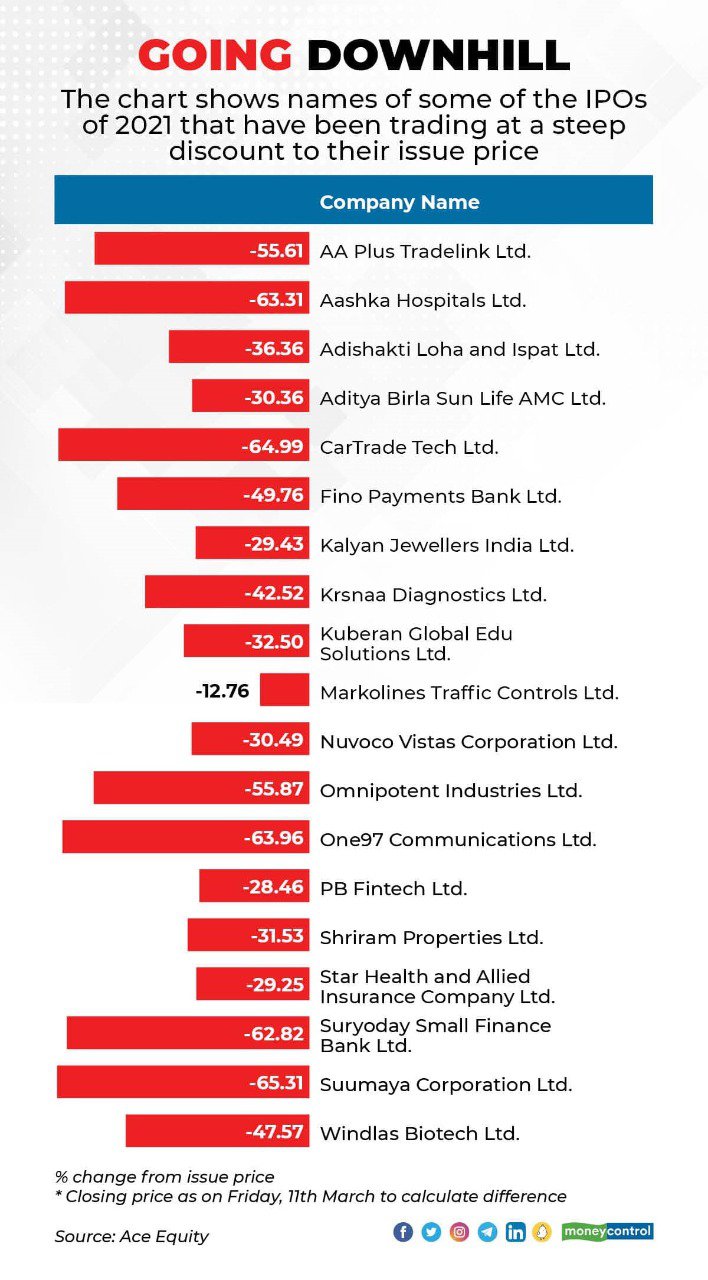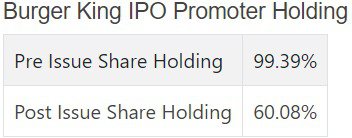IPO - Is it worth to take a chance?

IPO is like a carnival game called "Pick-a-Duck". In the game, you pay your money and take your chances. How lucky you have been can only be decided once you take a chance. Question is whether this chance is worth taking?
Lets try to delve deeper to find an answer to the above question. After-all, its about your hard-earned money. You don't want to play with that..!
Friend of Good Times!
The fact that IPOs have been fair-weather friends is well known. Whenever there are bullish sentiments in the market, IPOs follow a long queue.
For retail investors, an IPO means much more than just a window to subscribe to an offer. It is a means to feel financially assured – a license to wealth and prosperity. However, the evidence shows that IPOs are unfair to small investors and provide a good exit price to the Promoters who are selling their stakes for a huge profit. In the past five years, academic evidence has shown that the IPOs in India have been priced at high valuations and they suffer a decline in prices after listing on trading days. Thus, retail investors stand the risk of catching the bull by its tail and witnessing losses whenever there is a trend reversal.

Unavailability of data or smartly cooking the data?
Most of the time there is not much information on the public domain except what is mentioned in the prospectus. Brokerage houses give their views on IPO and most of the time they give a “Thumps Up”. Also, many brokers usually refrain from giving negative opinions about IPOs for fear of losing their allied business. On the other hand, some brokers may give negative opinions about an IPO just to sell their shelf investment avenues. So for a small investor it is like a see-saw and this usually leads to a wrong investment decision.
Manipulating the data is an easy task for management as they know the tricks of the trade and retail investors can go frenzy by just looking at the name. You might have observed many times that when new tech companies are coming up with an IPO, they have huge losses for the last couple of years. However, you would notice that in just a couple of quarters before IPO launch the losses will suddenly start reducing. They will try to cut down on their promotional expense just before the IPO launch so that the net negative income will get reduced. This is just one of the many tricks!!
Myth #1 - IPOs provide quick listing gains!
Really? Have investors made good money from IPOs in the past? Lets try to find out! First we will take the case of a successful IPO that listed at a huge premium to the IPO offer price.
Successful listing - Case of Avenue Super Mart (DMART)
DMART was one of the most successful IPOs which listed at almost 3 times of the IPO offer price. So, in this case it seems that investors did make a killing. But the question is how much? If you look at the subscription data, you will find that the issue was oversubscribed by a whopping 104.5 times! In other words, if a retail investor would have applied for 2 Lac worth of shares, she would have got only Rs. 2,000 worth of shares. On the day of listing 2,000 would have become 6,000. Though it is three times, but it is a paltry gain of Rs. 4,000 on a commitment amount of Rs. 2 Lacs. Hence, the entire exercise was actually futile. The allotment (if any) was just peanuts, resulting in poor overall returns on an absolute basis, while capital got blocked for a period of 10 days. In those 10 days, a trader would have easily made much more than what the IPO listing gave!! Some investors even take a loan in order to receive more share allotment. However, it’s a risky exercise, as all IPOs don’t list at a premium on the first day.
Poor listing - Case of Paytm and Reliance Power
As regards to poor listing, first name that comes to mind is either Reliance Power or Paytm. In both cases, investors were very bullish about these companies before the IPO. Hence the IPOs received great investor interest. However, both turned out to be a huge disappointment post listing. These two are not the only IPO failures. Few other names like Bharti Infratel, Coffee Day etc were also big failures. Then there are some companies which gained 100% on the listing day. However, just after a year of listing they may not be trading even at the IPO offer price.
Poor Listing but good returns post listing - Case of ICICI Securities
Now let’s consider if you have subscribed to an IPO of ICICI Securities. Offer price was Rs. 520 per share. Investors who applied in the IPO got almost full allotment. But to their horror, the stock listed at just Rs. 445 despite the attached brand value and highest market share amongst brokers. So, it would have been logical for the investor to consider selling at a loss and unblock their investments. If they sold at listing price, they may be puzzled again. Lo and behold, the stock is now trading at Rs. 650 per share after 3 years. At one point it went upto Rs. 880 which is almost double of the listing price. So, what's your take now? Was it wise to apply in this IPO or was it wise to buy at listing?? As a retail investor, you might be having the least information of a particular company. Big players out there might benefit out of your loss.
Myth #2 - IPOs are available at a discount
Basic of Investing does not change no matter what the asset is or where the asset is available - viz. primary or secondary market.
Are you able to check all the points before subscribing to an IPO?
o Is the business doing well?
o Revenues, Profit & market share Growth Trajectory
o What’s their competitive advantage?
o Management Background
o Valuation done by IB is at what premium?
o What is the core purpose of launching an IPO?
There will be a high level of Information asymmetry as a retail investor even if you get the answers to all the above questions.
Till now your perception would have started changing for IPO, but now too many people think that IPOs are way to invest at lower prices, such views aren't correct. Even before you have invested, the company would have undergone several rounds of private investment. Remember that the price of the shares only goes up with each round of investment. IPO is more like a one-sided game where the company together with its investment bankers decides on the issue price of the IPO, which is almost always at a premium. (Best example is that of Paytm).
Where is my invested amount in IPO used?
There are varied number of ways in which your invested money can be used and this will be mentioned in DRHP of IPO. Here an investor needs to be little bit cautious. Despite company mentioning about the same often investor miss this out. What an investor needs to focus on is whether this IPO is a "Fresh Equity Issue" or "Offer for sale (OFS)" or a combination of both.
Let’s take the example of Burger King : Pre issue shareholding of the promoter was 99.39% & Post issue it was drastically reduced to 60.08%, This IPO was the combination of both Fresh Issue and OFS. In OFS, the investor who is subscribing to the IPO will be replacing the existing owners. Existing investors can be VC ( Venture capital) or even the founders. In this case, you are giving a good exit option to the person who is already more informed than you about the company.

Source :- www.chittorgarh.com
Now coming to the hot topic in Investment “LIC IPO” - are you really investing in the growth of a company or are you just giving an exit to existing investors?
Summary - IPO investment is a speculative business
We have, as shown above, enough data to prove that IPO investing is essentially speculative in nature. It is almost impossible to know what valuation the company will sport on the listing day. In most of the cases, if the IPO is hugely over-subscribed then only it lists at a sufficient premium. But in such cases, the allotment is meagre. So, the investment math doesn't work out for a retail investor. IPOs are in-fact a good investment option for an institutional investor who is looking for a much bigger chunk. It is not easy for an institutional investor to buy a big chunk from open secondary market. Hence, IPO works out good for them. But same is not the case for a retail investor.
Hence we conclude by saying that IPO is actually a mirage. If you want to invest in IPO think beyond listing gains based on your analysis. Long-term investing creates Wealth. Your focus should be on long-term wealth generation for your financial aspirations. IPO is unlikely to fit into this long term wealth creation goal.
-Shrikant
Get Expert Financial Advice
Book an introductory call with our Certified Financial Planner to explore how we can help you achieve your financial goals.
Book Your Appointment



